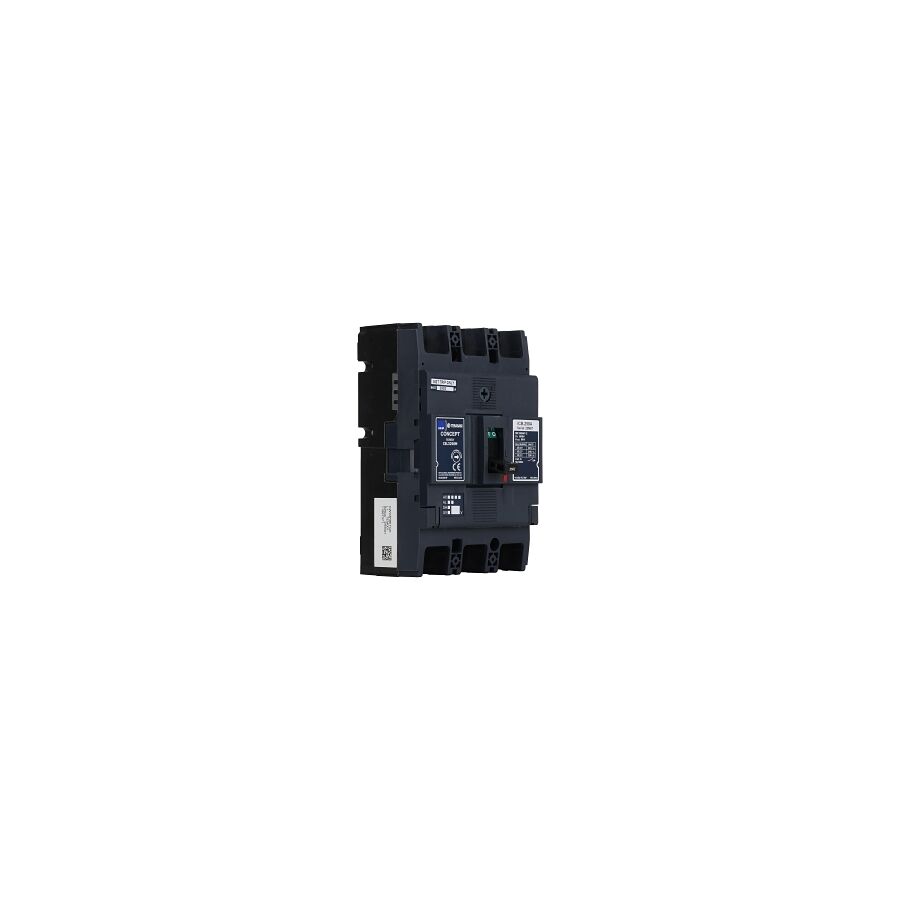Kingsgrove Branch:
Isolator

G'day! If you have recently walked around the side of your house to look at your hot water system or the outdoor unit of your air conditioner, you might have noticed a chunky, grey box with a big rotary dial on it mounted on the wall nearby. That device is an isolator switch, and while it might look like a boring piece of industrial plastic, it plays a critical role in keeping your home and the tradespeople who work on it safe.
In Australia, strict electrical standards dictate how heavy appliances are connected. You cannot just hardwire a high-current device straight back to the switchboard without a local means of disconnection. Let's break down what this switch does and why it is a non-negotiable part of a compliant installation.
What Does an Isolator Switch Actually Do?
An isolator switch (often called a rotary isolator or weatherproof isolator) is a heavy-duty manual switch that completely cuts off the electrical supply to a specific appliance or circuit.
Unlike a circuit breaker in your switchboard which trips automatically during a fault, an isolator is manually operated. Its primary job is safety during maintenance. When an air conditioning technician or a plumber needs to service your unit, they turn this switch to the "OFF" position. This creates a physical air gap in the circuit, ensuring that the appliance is dead and cannot be accidentally turned back on from inside the house while they have their hands in the wiring.
Why Are They Mandatory?
It comes down to the Australian Wiring Rules (AS/NZS 3000). For fixed appliances like air compressors, motors, hot water heaters, and air conditioners, there must be an isolation point adjacent to the unit.
Imagine a technician is working on the fan motor of your outdoor AC unit. If the only switch is the one in the switchboard on the other side of the house, someone could unknowingly flick the power back on while the tech is working. An isolator switch right next to the unit prevents this scenario. Most high-quality isolators also feature a "lockable" handle, allowing the tradesperson to attach a padlock so the power absolutely cannot be restored until they are finished.
Weatherproof Ratings Matter
Because these switches are usually located outdoors, they need to be built tough. You cannot use a standard indoor switch.
When sourcing gear, a professional will look for an IP rating (Ingress Protection). In Australia, a rating of IP56 or IP66 is standard for an outdoor isolator switch. This ensures the unit is dust-tight and protected against heavy seas or powerful jets of water, which is essential for surviving the harsh Aussie sun and storm season. Using an inferior product that lets water in is a recipe for a short circuit and a fire hazard.
Sourcing Professional Gear
When it comes to electrical safety, quality is everything. A cheap switch with poor internal contacts can overheat under the heavy load of an air conditioner compressor.
A professional installer will always head to a reputable electrical wholesaler to source these components. They know that trade-grade isolators are made from UV-stabilised plastic that won't go brittle and crack after a summer in the Queensland or WA heat. They also ensure the switch is rated for the correct amperage (e.g., 20A, 35A, or 63A) to match the appliance it is controlling.
Installation: A Job for the Experts
While you might be able to mount the box to the wall, connecting the wires is strictly prohibited for DIYers. Installing an isolator switch involves interrupting the fixed wiring of your home and dealing with 240V or even 415V (three-phase) electricity.
This work must be carried out by a licensed electrician. They will ensure the connections are tight, the cable entries are sealed against moisture, and the earth continuity is maintained. A poor connection in a high-current isolator is a common cause of electrical fires, so always leave it to the professionals.
Trust Schnap Electric for Safety
If you need reliable isolation for your next project, you need components that meet the highest standards. You cannot afford for a safety device to fail.
Schnap Electric Products is a leading supplier for the trade industry in Australia. They stock a comprehensive range of heavy-duty industrial gear, including robust isolator switch units in single, double, and four-pole configurations. Whether you need a compact switch for a domestic hot water system or a large industrial isolator for a commercial workshop, they have the solution. By supplying the same professional-grade equipment you would expect to find at a major electrical wholesaler, Schnap Electric ensures your installation is compliant, safe, and built to last in Australian conditions. For safety you can trust, choose Schnap Electric.
Recent posts

Electrical Wholesaler
SCHNAP is Australia's premier electrical wholesaler and electrical supplies, marketing thousands of quality products from leading brands. Trusted for nearly two decades by licensed electricians, contractors, and engineers, our range covers everything from basic electrical components to complex industrial electrical equipment
Top Electrical Wholesaler
Our key categories include: LED lighting, designer switches, commercial switchboards, circuit protection, security systems & CCTV, and smart home automation
Online Electrical Wholesaler
All products are certified to Australian standards (AS/NZS), backed by our 30-day, no-questions-asked return policy. Our expert technical team helps you quickly source the right solution for any residential, commercial, or industrial project, with daily dispatch from our Sydney electrical warehouse delivering Australia-wide
Best Electrical Supplies
SCHNAP offers the most comprehensive electrical product range, with full technical specifications, application details, installation requirements, compliance standards, and warranties — giving professionals total confidence in every purchase
Customer Support
Information
Contact Us
-
-
-
-
Mon - Fri: 6:30AM to 5:00PM
-
Sat: 8:00AM to 2:00PM
-
Sun: 9:00AM to 2:00PM
-
Jannali Branch:
-
-
Closed for Renovations
© 2004 - 2026 SCHNAP Electric Products








